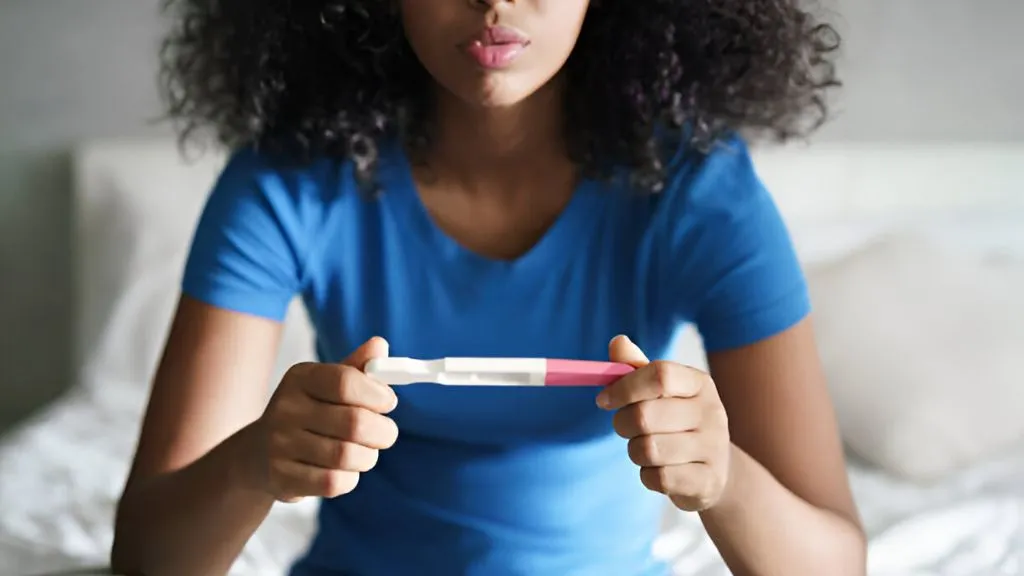
Table of Contents
Did you have a negative pregnancy test but feel pregnant? Feeling pregnant may be a monthly issue for you if you’ve been trying to conceive for a long time. During this time you will have pregnancy symptoms such as fatigue, and nausea. You discover you’re not pregnant this month when your expected period arrives.
Other possibilities include having pregnant symptoms despite a negative pregnancy test. There’s a chance you’re suffering from spots. You may have had pregnancy signs, but now they’ve gone.
Let’s dive into all the science (and some not-so-scientific stuff) behind this strange phenomenon, from false negatives to hormonal hijinks, and everything in between.
Section 1: Understanding Early Pregnancy Symptoms
First off, let’s address the elephant in the room. Early pregnancy symptoms like sore breasts, fatigue, nausea, food cravings (or aversions), and even implantation bleeding can show up before a pregnancy test turns positive. Your body might be throwing all the signs your way before it produces enough hCG (human chorionic gonadotropin) for a test to detect.
So yes, your instincts might be on point… just a little ahead of schedule
Also Read: Pregnancy Hormone or hCG Levels During Pregnancy
Section 2: What Causes a False Negative Pregnancy Test?
Let’s break down some real reasons your pregnancy test might be playing games with your heart (and your uterus):
- Testing Too Early: You may not have enough hCG in your urine yet. It’s like trying to pick up Wi-Fi from a café two blocks away; it’s just not strong enough.
- Low hCG Levels: Some pregnancies start with slower hCG production. Doesn’t mean something’s wrong; your body just likes to take its sweet time.
- The Hook Effect: Rare, but real. This is when there’s too much hCG (yep, too much!) and it overwhelms the test, leading to a false negative.
- Faulty or Expired Test: If your test is old, damaged, or you fished it out from the bottom of your purse, it might not work properly.
Diluted Urine: Chugged a gallon of water before the test? You may have watered down your hCG to undetectable levels.
Section 3: What About Those Rare But Real Conditions?
Let’s talk about the lesser-known plot twists in the pregnancy saga:
- Cryptic Pregnancy: It’s like stealth mode. Some women don’t know they’re pregnant for months. No symptoms, irregular cycles; it’s pregnancy’s best magic trick.
- Chemical Pregnancy: This is an early miscarriage, usually before 5 weeks. It can cause pregnancy-like symptoms and even a faint positive test that disappears later.
- Ectopic Pregnancy: A potentially dangerous condition where the embryo implants outside the uterus. It can trigger pregnancy symptoms without a traditional positive test.
- Ovulation Timing Confusion: You may have ovulated later than expected, which throws off the whole pregnancy test schedule.
Section 4: Pregnancy Test Sensitivity Matters
Not all pregnancy tests are created equal. Some are better at picking up low hCG levels than others. Brands that advertise “early detection” are usually more sensitive. Always check the box and instructions before testing; science matters.
Section 5: Okay, So I’m Not Pregnant. Why Do I Still Feel This Way?
Even if there’s no baby on board, plenty of other things could be causing those classic pregnancy symptoms:
- PMS: It’s the evil twin of early pregnancy symptoms. Bloated belly, sore boobs, mood swings; sound familiar?
- Stress: Stress can mess with your hormones big time. It can delay your period and mimic pregnancy symptoms. And guess what? Stressing about being pregnant can make it worse. Irony, right?
- Diet & Lifestyle: Changes in your diet, new meds, or too much caffeine can throw your body out of whack.
- Other Medical Conditions: Thyroid issues, ovarian cysts, or gastrointestinal disorders (hello, gas!) can all produce symptoms similar to early pregnancy.
Section 6: So… What Should You Do Next?
We get it; your uterus is sending mixed signals, and you just want answers. Here’s what you can do:
- Wait a Few Days and Retest: If your period still hasn’t arrived, test again in 2–3 days. Use a first-morning urine sample for best results.
- Track Your Symptoms: Note what you’re experiencing, when, and how often. It’s helpful for you and your doctor.
- Consult a Healthcare Provider: If symptoms persist or you’re concerned, don’t just Google yourself into a panic spiral. Your OB-GYN can do a blood test (which measures exact hCG levels) or an ultrasound for a more definitive answer.
- Take Care of Yourself: Whether pregnant or not, your symptoms are valid. Rest, hydrate, and eat well. Your body’s working hard; give it some love.
Conclusion
So, why do you feel pregnant when you’re not? Your body may be sending signals for all kinds of reasons; some natural, some mysterious, and some just downright annoying. The key is patience, understanding your body’s rhythms, and trusting your instincts (and your doctor).
Remember, whether it’s baby fever or just your body playing tricks on you, it’s okay to feel all the feels. You’re doing great, one test (or twelve) at a time.
FAQs on Why Do I Feel Pregnant When I’m Not?
Yes, early pregnancy symptoms can appear before your hCG levels are high enough for a test to detect. That’s why it’s often best to wait a few days after a missed period to test.
A chemical pregnancy is a very early miscarriage, usually before 5 weeks, that may produce a faint positive test and pregnancy symptoms before disappearing.
The hook effect occurs when hCG levels are so high that they overwhelm the test, causing a false negative. Rare, but worth knowing.
It’s possible, especially if you tested too early or if your hCG levels are lower than average. Consider retesting or seeing your doctor for a blood test.
PMS, stress, dietary changes, and medical issues like thyroid imbalances or digestive disorders can all cause symptoms similar to pregnancy.




